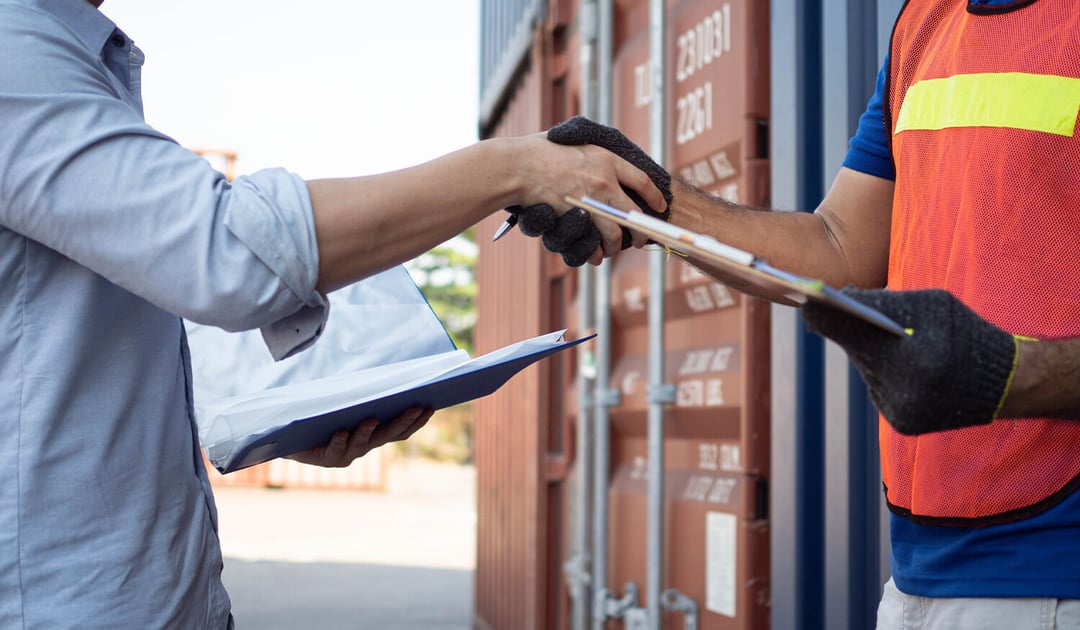The most commonly thought of direction for freight to travel between Mexico and the U.S. is north, from Mexico, but there are opportunities for a variety of shippers to export freight from the U.S. to Mexico as well. Whether those companies supply the many factories already in operation (or those springing up due to the ongoing nearshoring trend), or they simply have finished products to bring to market in Mexico, capacity is available to get the job done. Case in point, the U.S. trade deficit with Mexico in 2021 was $108.2 billion. A growth in exports would better balance the scales to avoid transporting empty semi-trailers and containers back to Mexico to take more product north - making routes more energy and resource-efficient and of course, offering potential cost savings. So what's stopping many businesses from exporting freight from the U.S. to Mexico? In large part, many are scared off by the perceived difficulties of getting their goods and products across the border. And while it can be a complicated process, the right logistics provider with on-the-ground partnerships can help shippers of all shapes and sizes successfully navigate those complications. In other words, companies need not (nor should not) go it alone.
What is required to ship freight to Mexico?
According to the Mexican Customs Bureau, one of the most common mistakes U.S. exporters make relates to lack of required documentation when attempting to ship freight to Mexico. Perhaps the most notable required document is called the Pedimento Aduanal, also known as the Mexican Entry Form. Often referred to simply as the pedimento, this form is essentially a tax receipt that proves all necessary taxes have been paid to Mexican authorities, thus allowing products to either enter or exit the country. Customs brokers (also known as Agente Aduanals) must have this particular document to finalize and finish the import/export process. While it can be as short as a single page, it's complex to fill out. Why? Beyond potential language barrier issues, it requires specific codes to be used instead of common names, words and locations. In addition to the pedimento, here are four more basic documents with self-explanatory names considered most vital:
- Commercial Invoice (Factura Comercial) - in Spanish - plus the pro forma
- Bill of Lading (Conocimiento de Embarque) - signed by the buyer and carrier to include details of goods sold, where they came from and how many there are
- USMCA Certificate of Origin (Certificado de Origen) - if goods qualify for the United States-Mexico-Canada Agreement
- Packing List (Lista de Empaue) - listing all contents with details including type of materials and weight & volume
The above five documents are required in just about every instance to ship freight to Mexico, but other applicable documentation includes the sales contract, insurance policy, Automated Export System (AES) filing, security bonds, lab analysis and more. If there are missing documents or issues with how they are filled in, a shipment may not be cleared and instead be detained or even outright rejected.
Do I need a customs broker to ship to Mexico?
Technically, shippers are not required to have a customs broker to ship to Mexico, but with the delicate processes, bond requirements and simply know-how to clear freight shipments, a qualified, licensed customs broker does basically qualify as a need. In fact, the Department of Commerce International Trade Administration actually says "Exporters should use an experienced freight forwarder and Mexican customs broker." Customs brokers know all the ins and outs of what's needed to get shipments across the border as smoothly as possible, avoiding costly detention or rejection due to missing or incorrect paperwork, labeling problems, improper classification, unpaid tariffs or other issues. They can also communicate on the ground with their connections to resolve any questions and provide local expertise for shippers with gaps in knowledge of the Mexican market. In essence, having a customs broker in Mexico along with a third party logistics provider (3PL) well-versed in cross-border shipping allows shippers to concentrate on their business with the knowledge that their freight will get where it needs to go without headaches and hiccups.
At InTek Freight & Logistics, we have an experienced Mexico-based customs broker available as well as additional logistics partners in Mexico. Combined with our expertise and technology, that makes for an effective solution to move freight across the border in either or both directions. Learn more by requesting a quote, and we'll get back to you discuss your company's Mexico shipping needs. For more information about us, or logistics and supply chain issues in general, check out our Resources page.



